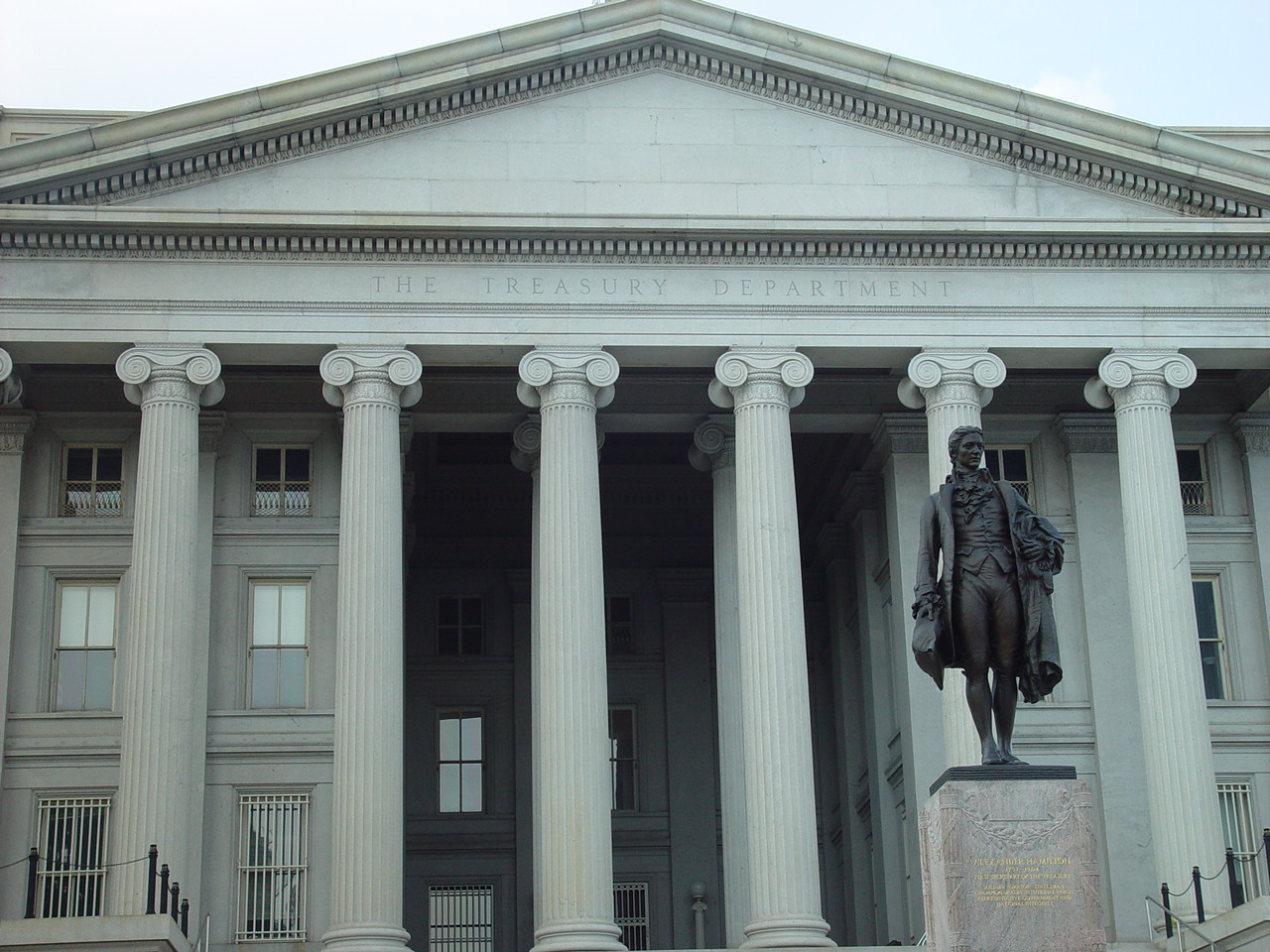
The U.S. Department of the Treasury. Photo: Joe Campbell
As promised, a federal judge on April 27, 2020, issued a decision in the closely-watched CARES Act lawsuit.
Judge Amit Mehta sided with tribal governments in the first round of the historic case. The Trump administration at this point in the litigation cannot distribute the $8 billion coronavirus relief fund to Alaska Native corporations, the 34-page decision states.
“Because the court finds that Plaintiffs have made a clear showing that they are likely to suffer irreparable harm in the absence of preliminary relief, that they are likely to succeed on the merits, and the balance of the equities and the public interest favor an injunction, the court grants Plaintiffs’ motions,” Mehta writes in reference to the 18 tribal nations that sued the Trump administration.
The Coronavirus Aid, Relief, and Economic Security Act, also known as the CARES Act, established the $8 billion fund through Title V of the law. In siding with the Indian nation plaintiffs, Mehta found that distributing the money to Alaska Native corporations at this time would cause them irreparable harm.
But Mehta stopped short of permanently barring Secretary of the Treasury Steve Mnuchin from sharing any of the $8 billion with any Alaska Native corporation (ANC). The ruling anticipates further developments because the Trump administration has yet to decide how much money — if any — these for-profit entities are to receive.
“The court will preliminarily enjoin the Secretary from disbursing Title V funds to any ANC, but will not direct him at this time to disburse the entire $8 billion in emergency relief to Plaintiffs and other federally recognized tribes,” Mehta wrote.
Additionally, since Mehta issued a preliminary injunction, the decision can be appealed. It’s possible the Trump administration will take the case to the D.C. Circuit Court of Appeals.
“This is a final, appealable order,” Mehta noted in a directive filed separately from the decision.
The decision affects tribes in 3 different cases, all of which have been consolidated. The plaintiffs in Confederated Tribes of the Chehalis Reservation v. Mnuchin are:
- Confederated Tribes of the Chehalis Reservation (Washington)
- Tulalip Tribes (Washington)
- Houlton Band of Maliseet Indians (Maine)
- Akiak Native Community (Alaska)
- Asa’carsarmiut Tribe (Alaska)
- Aleut Community of St. Paul Island (Alaska)
- Navajo Nation (Arizona, New Mexico, Utah)
- Quinault Nation (Washington)
- Pueblo of Picuris (New Mexico)
- Elk Valley Rancheria (California)
- San Carlos Apache Tribe (Arizona)
The plaintiffs in Cheyenne River Sioux Tribe v. Mnuchin are:
- Cheyenne River Sioux Tribe (South Dakota)
- Rosebud Sioux Tribe (South Dakota)
- Oglala Sioux Tribe (South Dakota)
- Nondalton Tribal Council (Alaska)
- Native Village of Venetie (Alaska)
- Arctic Village Council (Alaska)
The final case is Ute Indian Tribe of the Uintah and Ouray Indian Reservation v. Mnuchin. The sole plaintiff is
- Ute Indian Tribe (Utah)
COURT DOCUMENTS
- DECISION: Confederated Tribes of the Chehalis Reservation v. Mnuchin
- ORDER: Granting Motions for a Temporary Restraining Order and Preliminary Injunction
Tuba City Regional Health Care Corporation (Navajo Nation)
HHS Small Ambulatory Program Awards $55 Million to 15 Tribes and Tribal Organizations (Indian Health Service)
Indian Health Service Announces New Deputy Director for Quality Health Care and Enterprise Risk Management (Indian Health Service)
Federal Emergency Management Agency (FEMA)
White House Office of Management and Budget (Joe Biden Administration)
Tuba City Regional Health Care Corporation (Arizona, Navajo Nation)
Oklahoma City Indian Clinic (OKCIC)
Indian Health Service (Department of Health and Human Services)
Navajo Nation Town Hall (Arizona, New Mexico, Utah)
Navajo Nation (Arizona, New Mexico, Utah)
Tribal organizations statement on advance appropriations for Indian Health Service
Indian Health Service Statement on Advance Appropriations (Department of Health and Human Services)
Indian Health Service (Department of Health and Human Services)
Indian Health Service (Department of Health and Human Services)
